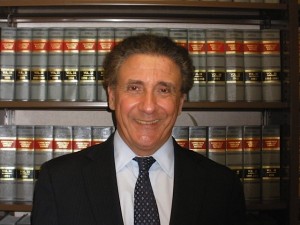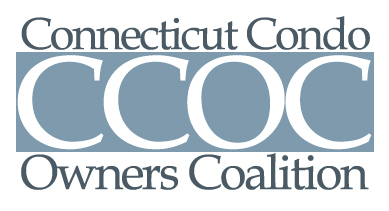Ask Ct Condo Atty. George: Do Connecticut Condo Laws Apply To Associations Created Prior To 1984?
The Common Interest Ownership Act (CIOA) generally governs the creation, alteration, management, termination, and sale of common interest communities created in Connecticut on or after January 1, 1984 (CGS § 47-214).
The law allows condominiums, cooperatives, and other planned communities established before January 1, 1984 to amend their declaration, bylaws, or surveys and plans to achieve any result permitted by CIOA regardless of what applicable law provided before that date. Thus, a pre-CIOA condominium may adopt whatever provision of CIOA it wishes and does not have to adopt all of CIOA (CGS § 47-218(a)). But provisions of CIOA must be adopted in conformity with any procedures and requirements for amending the declaration and bylaws under pre-CIOA or, if there are none, in conformity with the amendment procedures of CIOA. In addition, if an amendment to the declaration or other governing documents of a pre-CIOA condominium grants to any person any rights, powers, or privileges permitted by CIOA, all corresponding obligations, liabilities, and restrictions in CIOA also apply to that person (CGS § 47-218(b)).
In addition, certain provisions of CIOA automatically apply to any condominium created in Connecticut before January 1, 1984, but only with respect to events and circumstances that occur after December 31, 1983 (CGS 47-216). These provisions generally apply only with respect to events and circumstances occurring after January 1, 1984, and do not invalidate existing provisions of such communities’ declarations, bylaws, surveys, or plans. These provisions are specified in Table 1 below.
Table 1: Applicability to common interest communities created before 1984
| Statute (CGS section) | What the Statute Relates To. |
| 47-202 | Definitions |
| 47-204 | Separate titles and taxation, recording of certificate by cooperative, and conveyance of interest in cooperative |
| 47-205 | Applicability of local land use laws to building conversions |
| 47-206 | Eminent domain |
| 47-210 | Unconscionable contracts, including leases that are presumed to be unconscionable |
| 47-218 | Amendments to governing instruments by pre-1984 communities |
| 47-221 | Description of units and unit boundaries |
| 47-222 | Interpretation and validity of bylaws, declaration, and rules; marketability of title not affected by insubstantial failure of declaration to comply with CIOA or by not recording surveys and plans simultaneously with the declaration. |
| 47-223 | Description of unit |
| 47-225(b) to (d) | Certain provisions relating to leasehold common interest communities |
| 47-236(b), (d), (i), and (j) | Certain provisions relating to amendments to declarations or bylaws |
| 47-237 | Termination of a common interest community |
| 47-240 | Merger or consolidation |
| 47-244 | Association powers and duties |
| 47-245(f) | Election of the executive board and officers |
| 47-250, | Association and Board Meetings and Association meeting rules |
| 47-251 | Quorums |
| 47-252 | Voting, proxies and ballots |
| 47-253 | Liability of unit owners, associations, and declarant |
| 47-255 | Insurance |
| 47-257 | Assessments for common expenses, willful misconduct, failure to comply with standards, and gross negligence; waivers not permitted |
| 47-258 | Liens for assessments and other sums due the association including enforcement |
| 47-260 | Association records, copies, and fees |
| 47-261b | Adoption, amendment or repeal of association rules |
| 47-261c | Notice to unit owners |
| 47-261d | Removal of officers and directors |
| 47-261e | Adoption of budgets; special assessments; and loan agreements |
| 47-270 | Resale of units |
| 47-278 | Statutory right of action to enforce CIOA, declaration, and bylaws; other methods to resolve disputes; hearings before the executive board |
Hartford Atty George Coppolo is a member of the Connecticut Condo Owners Coalition (CCOC) Advisory Committee.
This article is for general informational purposes only, does not constitute and should not be relied upon as legal advice and does not create an attorney-client relationship between the author or the author’s law firm (Gordon, Muir and Foley, LLP) and any party. Statutes and case law vary from jurisdiction to jurisdiction and may change from time to time. You should consult a licensed attorney for legal advice relating to your specific situation.






My condo association is looking to make a substantial capital expenditure ( 350,000) and has notified unit owners that the propsal will pass at least 1/3 of the ballots are returned and that a simple majority of thore returned are in favor. Is that possible that 1/6 of teh unit holders could get this through?
Yes, because under state law it takes 50 percent plus one of ALL unit owners to defeat a budget.
I own back condo fee which was turned over the the assoc attorney. I got my letter saying I need to call the attorney to make a payment arrangement. Once I called I was informed that I cant make a payment plan with him and that I have 5 days to pay it in full. Is the right??
Sue
Unfortunately it is legal.
I purchased a unit in Dec. 2009. This complex has 193 units and was built in 5 phases. When I purchased I was given a copy of the financial and the condo docs., there was not disclosure that there were a Master Association and four added associations, one for each time a phase was built and given COA’s from town inspectors. In 2004 the Board of Directors was advised to correct this issue, as the Condo Association was in violation of Connecticut Laws. The BOD nor The Property Management Company made any attempt to make any revisions, and continued to operate in violation, without disclosure. Can the Property Management Company and previous board members be help financially responsible; or does the financial responsibility fall on the current unit owners, many who were given fraudulent information on purchase. (How can any property be sold, when it is not in compliance with the law)
I am not a lawyer, but it seems to me that someone could face a fraud issue.
Does the state of Connecticut require condo associations to sign their bylaws or just record them? I need to know if they are unsigned, but recorded if they are still valid. What is the state law that allows for them to not be signed?
i just had a patio extension ( with permission from our board). In the past 5 yrs. I had a small safety rail on the old patio. There is a 13″ step off my patio, so I installed a 2′ wrought iron safety rail ( it is detachable) for the protection of my guests. There are no rules in our bylaws that prohibit this, or that state wether we can or can’t have this safety feature,now I am being asked to remove the “fence”, is there any way I can persuade them, for the safety of everyone to keep it?
you might want to check with town hall
Do you know why the legislature failed to incorporate Section 47-230, particularly 47-230a, as automatically applicable to condos created before 01/01/1984.
Thank you
NEED HELP…just found out that my mortgage company paid out to my HOA $1725, via their lawyer. I wasn’t even aware of it until the called the mortgagor to inquire as to why my payment was increasing.
You need to contact your bank.
We recently had a meeting with the legal counsel for Capitol Ave Condos, the executive boards’ representative, and the last 3 condo owners. The biggest part of the meeting centered around the proposed assessment of $120,000 which was adopted by the executive committee meeting on an earlier date (we were never notified/invited ). The executive board consist of member elected by Newbrit, LLC who own 9 out of 12 units so of course we were out voted 9 – 3.
My concern is that the budget doesn’t add up to $120,000 but like $91,000 ( the budget wasn’t presented but instead shown to us on the representatives’ laptop). The proposed budget includes new boilers/DHW that were installed in the rental units owned by Newbrit LLC for $13250 total (each unit has separate utility payments).
My question is… How will I be able to recoup the difference will all the work/repairs are performed ? We are talking of about $3500 per unit
We would like to remove and replace the currant board for many reasons. What is the legal protocol. We have formed an Association Committee and want to move forward.
We have a contract states. The work shall include Upper and
Lower Decks, A loan was taken out, where each Unit Owner shall pay, $95.00 for 5 years,
As of June we were informed of a shortfall, This Board has
now used 19.3, so the Unit Owners with the top decks, must pay for there shortfall, the loan that was taken out, by a
management company of $8200.00, Closing cost, railing that had to be replace,$7,500, and other expenses, my question is this, why should these Unit Owners with 2 decks be subject to pay for there shortfall?
This a Community shortfall not, just these units with 2 decks, we have never Used this 19.3,(Limited Common Elements)
and these accounts were payed in 2017, 2018,
Mean while after almost 3 years in May, these decks have Not been started.
The Board of Director’s will not change there mind, so the Unit Owners with a 2nd deck must pay $65.00 a month plus $95.00 a month for there lower deck.
we are a divided community, and that’s the sad part.